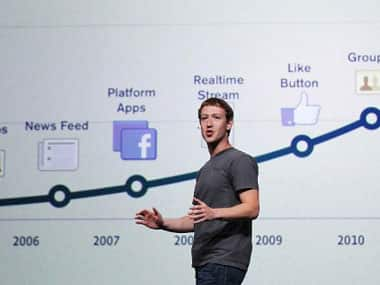When it comes to keeping track of what you read, what you f-like, what you share, well Facebook does a damned good job of it, never mind the flak from users, governments, etc about dodgy privacy deals. It’s not exactly the world’s biggest secret, that Facebook keeps our data and therefore Facebook’s latest list, of the most shared articles on the site in US for the year, 2011 shouldn’t leave any of us fuming. Often times with one click on the “Allow” button we’ve given an app full access to our browsing behaviour.
The list applies to US and while we don’t really know what people in India are reading, as a Facebook addict, I pretty much know what my newstream looks like daily. Each morning, my Facebook newstream begins with X read the following articles on Y Facebook reader app. Usually the articles are around Facebook and privacy issues, television shows, and these days Kolaveri D. As I look at the list that applies to America, I can’t help but feel the need for some introspection, a bit of self critique about our Facebook lives.
[caption id=“attachment_144761” align=“alignleft” width=“380” caption=“AFP”]
 [/caption]
[/caption]
The most read article in the list is the one on Satellite Photos of Japan, Before and After the Quake and Tsunami byNew York Times. Not a big a surprise, since shock and horror will always be the most read. It’s an uncomfortable truth about ourselves and the kinds of news that we like to read and explore.
The next few articles on the list are all your regular “light reading”. What teachers really want to tell parents (CNN) was the second most shared, followed by concerns about Zodiac signs. The article in question No, your zodiac sign hasn’t changed (CNN) must have been reassuring to all those distraught Leos who were worried that they were now doomed to be Virgos. In fact I remember a similar onslaught of Facebook status messages in my newsfeed when the Zodiac universe had been tampered by Opihuchus. So don’t try and tell me, “I’m not superstitious.” I know that, your “daily horoscope” on my newsfeed is proof.
Parents, don’t dress your girls like tramps (CNN) is number four. All of this is shining proof that funny headlines and random news stories are what we like to read on the networking site. For instance the list has a whole lot of new articles ranging from How to Talk to Little Girls (The Huffington Post) to A Message to Women From a Man: You Are Not “Crazy” (The Huffington Post) to (video) - Twin Baby Boys Have A Conversation! (Yahoo). What’s common to them are crazy headlines, one that we berate the media for using, because they’re attention grabbing.
Clearly it’s about time we accept that while we might be able to manage our streams, what we read and search for tells us the truth about ourselves. About perhaps, raw human curiosity. And what we like is a hint of what our friends like and then there’s no stopping it. Things go viral for no explicable reasons and Facebook is a place where we do that, a lot.
For me Facebook is about a quick, first reaction more than anything else. And that’s precisely why despite all the debates, all the privacy hulabaloo, I’d still click f-like for every mind-numbing link because in the end, it’s just an f-like, nothing more, nothing less.
For the complete list you can go here .
)